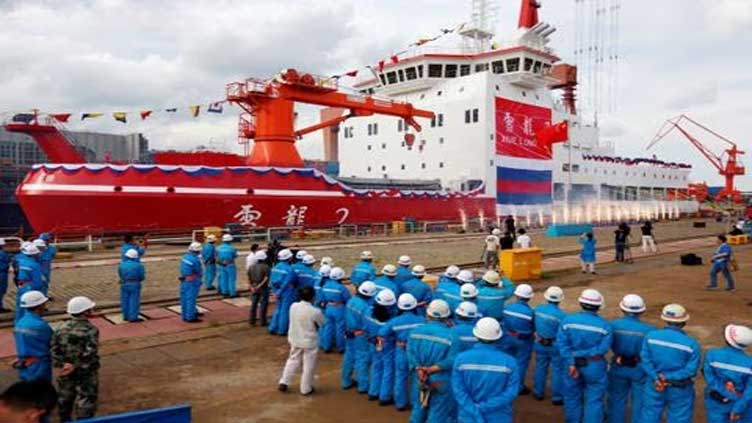Biggest Chinese Antarctic fleet sets off to build research station

Technology
Biggest Chinese Antarctic fleet sets off to build research station
BEIJING (Reuters) - Two Chinese icebreaker research vessels and a cargo ship set sail on Wednesday for the Antarctic with more than 460 personnel on board to help complete construction of China's fifth station on the world's southernmost continent.
China's biggest flotilla of research vessels deployed to the Antarctic will focus on building the station on the rocky, windswept Inexpressible Island near the Ross Sea, a deep Southern Ocean bay named after a 19th-century British explorer.
Work on the first Chinese station in the Pacific sector began in 2018. It will be used to research the region's environment, state television reported.
China has four research stations in the Antarctic built from 1985 to 2014. A U.S.-based think tank estimated the fifth could be finished next year.
The facility is expected to include an observatory with a satellite ground station and should help China "fill in a major gap" in its ability to access the continent, the Center for Strategic and International Studies (CSIS) said in a report this year.
The station is also well situated to collect signals intelligence over Australia and New Zealand and telemetry data on rockets launched from Australia's new Arnhem Space Centre, it said.
China rejects suggestions that its stations would be used for espionage.
The two icebreakers, Xuelong 1 and Xuelong 2, the name means "Snow Dragon" in Chinese, set sail from Shanghai with mostly personnel and logistics supplies on board.
The cargo ship "Tianhui", or "Divine Blessings", taking construction material for the station, set off from the eastern port of Zhangjiagang.
The five-month mission will include a survey on the impact of climate change.
The two icebreakers will also conduct environmental surveys in Prydez Bay, the Astronaut Sea in the southeast Antarctic, and in the Ross Sea and Amundsen Sea in the west.
The mission, China's 40th to the Antarctic, will also cooperate with countries including the United States, Britain, and Russia on logistics supply, state media said.


